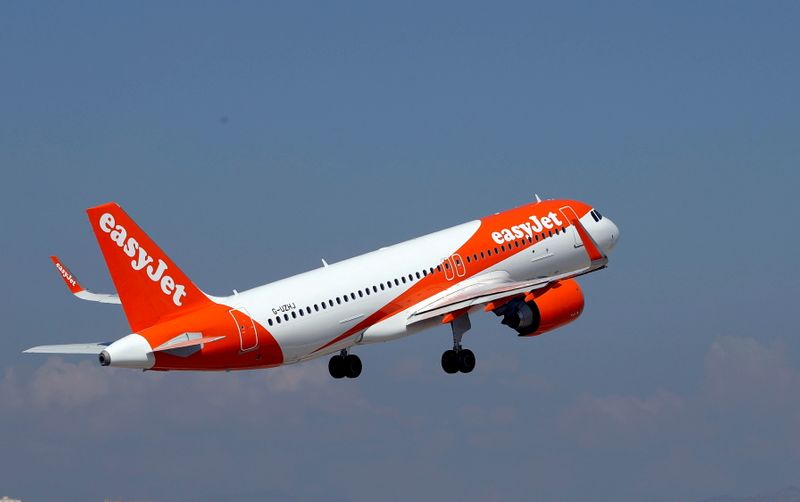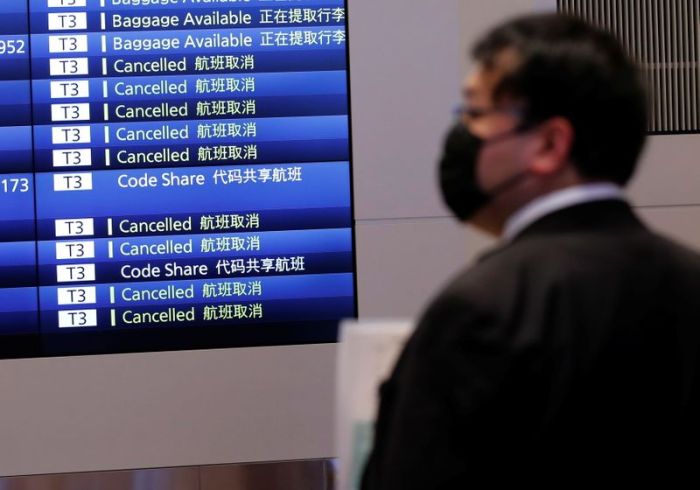By Kate Holton
LONDON (Reuters) -British airline easyJet said it had seen a softening in demand as COVID-19 outbreaks and the discovery of the Omicron virus variant forced customers to cancel city breaks, although longer-term bookings have held up well.
Reporting full-year results five days after news of the new coronavirus variant hammered airline stocks, easyJet said it had seen some short-term drop off in demand, with customers delaying flights into early next year. It has not seen an increase in ‘no-shows’ at airports however.
“We do see that there has been an impact, particularly on the short-term departures, but it’s not to the same level of impact and drop off we’ve seen in previous times when restrictions have been introduced,” Chief Executive Johan Lundgren told reporters.
The airline’s shares bounced around in early trading, and were down 2% at 0910 GMT.
EasyJet said despite the uncertainty, its new Oct.1 financial year had started well and for summer 2022 – the fourth quarter of its financial year – it expects capacity to have recovered to close to pre-pandemic levels.
The group came through the pandemic by cutting costs, bolstering its balance sheet and switching capacity to the busiest routes. It is now increasing its fleet plan by 25 aircraft, with slots added at Gatwick, Porto, Lisbon and Milan’s Linate.
Airlines have been on a roller-coaster of a ride this year, steadily recovering in the first half as first Europe and then Britain reopened for travel, before fears started to grow about the pace of the recovery, and as new COVID-19 outbreaks emerged.
Airline shares plunged on Friday after news of the Omicron variant broke. Low-cost group Ryanair had already warned that European airlines were in for a fraught end to the year as infection rates on the continent surged.
“There is no getting away from the fact there’s further to climb and the coming months will be patchy at best,” said Sophie Lund-Yates, equity analyst at Hargreaves Lansdown.
“But a newly refreshed liquidity position and competitive advantages means there are some reasons for optimism where easyJet’s concerned.”
EasyJet reported a headline loss before tax of 1.14 billion pounds ($1.52 billion) for the year to end-September, at the higher end of forecasts, and said first-quarter capacity was expected to be up to around 65% of 2019 levels.
It had previously forecast 70%. It did not give a full financial outlook however as customers book flights closer to departure, preventing clear visibility.
($1 = 0.7507 pounds)
(Reporting by Kate Holton, Editing by Paul Sandle, Louise Heavens, Kirsten Donovan)
























